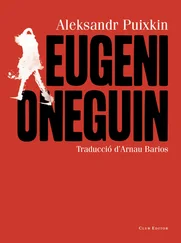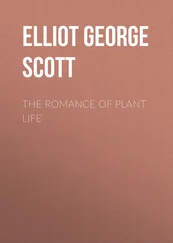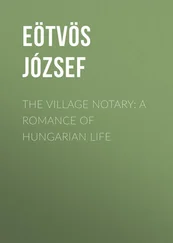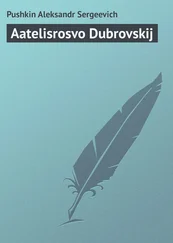Aleksandr Pushkin - Eugene Oneguine [Onegin]. A Romance of Russian Life in Verse
Здесь есть возможность читать онлайн «Aleksandr Pushkin - Eugene Oneguine [Onegin]. A Romance of Russian Life in Verse» весь текст электронной книги совершенно бесплатно (целиком полную версию без сокращений). В некоторых случаях можно слушать аудио, скачать через торрент в формате fb2 и присутствует краткое содержание. Год выпуска: 2007, Жанр: Поэзия, на английском языке. Описание произведения, (предисловие) а так же отзывы посетителей доступны на портале библиотеки ЛибКат.
- Название:Eugene Oneguine [Onegin]. A Romance of Russian Life in Verse
- Автор:
- Жанр:
- Год:2007
- ISBN:нет данных
- Рейтинг книги:4 / 5. Голосов: 1
-
Избранное:Добавить в избранное
- Отзывы:
-
Ваша оценка:
- 80
- 1
- 2
- 3
- 4
- 5
Eugene Oneguine [Onegin]. A Romance of Russian Life in Verse: краткое содержание, описание и аннотация
Предлагаем к чтению аннотацию, описание, краткое содержание или предисловие (зависит от того, что написал сам автор книги «Eugene Oneguine [Onegin]. A Romance of Russian Life in Verse»). Если вы не нашли необходимую информацию о книге — напишите в комментариях, мы постараемся отыскать её.
Eugene Oneguine [Onegin]. A Romance of Russian Life in Verse — читать онлайн бесплатно полную книгу (весь текст) целиком
Ниже представлен текст книги, разбитый по страницам. Система сохранения места последней прочитанной страницы, позволяет с удобством читать онлайн бесплатно книгу «Eugene Oneguine [Onegin]. A Romance of Russian Life in Verse», без необходимости каждый раз заново искать на чём Вы остановились. Поставьте закладку, и сможете в любой момент перейти на страницу, на которой закончили чтение.
Интервал:
Закладка:
So hearken, every worthy spouse,
I would your vigilance arouse,
Attentive be unto my rhymes
And due precautions take betimes.
Ye mothers also, caution use,
Upon your daughters keep an eye,
Employ your glasses constantly,
For otherwise—God only knows!
I lift a warning voice because
I long have ceased to offend the laws.
XXVII
Alas! life's hours which swiftly fly
I've wasted in amusements vain,
But were it not immoral I
Should dearly like a dance again.
I love its furious delight,
The crowd and merriment and light,
The ladies, their fantastic dress,
Also their feet—yet ne'ertheless
Scarcely in Russia can ye find
Three pairs of handsome female feet;
Ah! I still struggle to forget
A pair; though desolate my mind,
Their memory lingers still and seems
To agitate me in my dreams.
XXVIII
When, where, and in what desert land,
Madman, wilt thou from memory raze
Those feet? Alas! on what far strand
Do ye of spring the blossoms graze?
Lapped in your Eastern luxury,
No trace ye left in passing by
Upon the dreary northern snows,
But better loved the soft repose
Of splendid carpets richly wrought.
I once forgot for your sweet cause
The thirst for fame and man's applause,
My country and an exile's lot;
My joy in youth was fleeting e'en
As your light footprints on the green.
XXIX
Diana's bosom, Flora's cheeks,
Are admirable, my dear friend,
But yet Terpsichore bespeaks
Charms more enduring in the end.
For promises her feet reveal
Of untold gain she must conceal,
Their privileged allurements fire
A hidden train of wild desire.
I love them, O my dear Elvine, [15] Note 14: Elvine , or Elvina , was not improbably the owner of the seductive feet apostrophized by the poet, since, in 1816, he wrote an ode, "To Her," which commences thus: "Elvina, my dear, come, give me thine hand," and so forth.
Beneath the table-cloth of white,
In winter on the fender bright,
In springtime on the meadows green,
Upon the ball-room's glassy floor
Or by the ocean's rocky shore.
XXX
Beside the stormy sea one day
I envied sore the billows tall,
Which rushed in eager dense array
Enamoured at her feet to fall.
How like the billow I desired
To kiss the feet which I admired!
No, never in the early blaze
Of fiery youth's untutored days
So ardently did I desire
A young Armida's lips to press,
Her cheek of rosy loveliness
Or bosom full of languid fire,—
A gust of passion never tore
My spirit with such pangs before.
XXXI
Another time, so willed it Fate,
Immersed in secret thought I stand
And grasp a stirrup fortunate—
Her foot was in my other hand.
Again imagination blazed,
The contact of the foot I raised
Rekindled in my withered heart
The fires of passion and its smart—
Away! and cease to ring their praise
For ever with thy tattling lyre,
The proud ones are not worth the fire
Of passion they so often raise.
The words and looks of charmers sweet
Are oft deceptive—like their feet.
XXXII
Where is Oneguine? Half asleep,
Straight from the ball to bed he goes,
Whilst Petersburg from slumber deep
The drum already doth arouse.
The shopman and the pedlar rise
And to the Bourse the cabman plies;
The Okhtenka with pitcher speeds, [16] i.e. the milkmaid from the Okhta villages, a suburb of St. Petersburg on the right bank of the Neva chiefly inhabited by the labouring classes.
Crunching the morning snow she treads;
Morning awakes with joyous sound;
The shutters open; to the skies
In column blue the smoke doth rise;
The German baker looks around
His shop, a night-cap on his head,
And pauses oft to serve out bread.
XXXIII
But turning morning into night,
Tired by the ball's incessant noise,
The votary of vain delight
Sleep in the shadowy couch enjoys,
Late in the afternoon to rise,
When the same life before him lies
Till morn—life uniform but gay,
To-morrow just like yesterday.
But was our friend Eugene content,
Free, in the blossom of his spring,
Amidst successes flattering
And pleasure's daily blandishment,
Or vainly 'mid luxurious fare
Was he in health and void of care?—
XXXIV
Even so! His passions soon abated,
Hateful the hollow world became,
Nor long his mind was agitated
By love's inevitable flame.
For treachery had done its worst;
Friendship and friends he likewise curst,
Because he could not gourmandise
Daily beefsteaks and Strasbourg pies
And irrigate them with champagne;
Nor slander viciously could spread
Whene'er he had an aching head;
And, though a plucky scatterbrain,
He finally lost all delight
In bullets, sabres, and in fight.
XXXV
His malady, whose cause I ween
It now to investigate is time,
Was nothing but the British spleen
Transported to our Russian clime.
It gradually possessed his mind;
Though, God be praised! he ne'er designed
To slay himself with blade or ball,
Indifferent he became to all,
And like Childe Harold gloomily
He to the festival repairs,
Nor boston nor the world's affairs
Nor tender glance nor amorous sigh
Impressed him in the least degree,—
Callous to all he seemed to be.
XXXVI
Ye miracles of courtly grace,
He left you first, and I must own
The manners of the highest class
Have latterly vexatious grown;
And though perchance a lady may
Discourse of Bentham or of Say,
Yet as a rule their talk I call
Harmless, but quite nonsensical.
Then they're so innocent of vice,
So full of piety, correct,
So prudent, and so circumspect
Stately, devoid of prejudice,
So inaccessible to men,
Their looks alone produce the spleen. [17] Apropos of this somewhat ungallant sentiment, a Russian scholiast remarks:—"The whole of this ironical stanza is but a refined eulogy of the excellent qualities of our countrywomen. Thus Boileau, in the guise of invective, eulogizes Louis XIV. Russian ladies unite in their persons great acquirements, combined with amiability and strict morality; also a species of Oriental charm which so much captivated Madame de Stael." It will occur to most that the apologist of the Russian fair "doth protest too much." The poet in all probability wrote the offending stanza in a fit of Byronic "spleen," as he would most likely himself have called it. Indeed, since Byron, poets of his school seem to assume this virtue if they have it not, and we take their utterances under its influence for what they are worth.
Интервал:
Закладка:
Похожие книги на «Eugene Oneguine [Onegin]. A Romance of Russian Life in Verse»
Представляем Вашему вниманию похожие книги на «Eugene Oneguine [Onegin]. A Romance of Russian Life in Verse» списком для выбора. Мы отобрали схожую по названию и смыслу литературу в надежде предоставить читателям больше вариантов отыскать новые, интересные, ещё непрочитанные произведения.
Обсуждение, отзывы о книге «Eugene Oneguine [Onegin]. A Romance of Russian Life in Verse» и просто собственные мнения читателей. Оставьте ваши комментарии, напишите, что Вы думаете о произведении, его смысле или главных героях. Укажите что конкретно понравилось, а что нет, и почему Вы так считаете.











